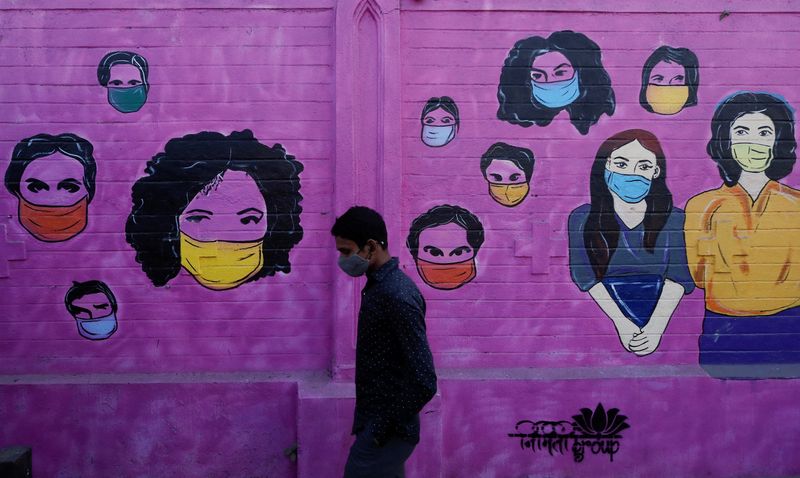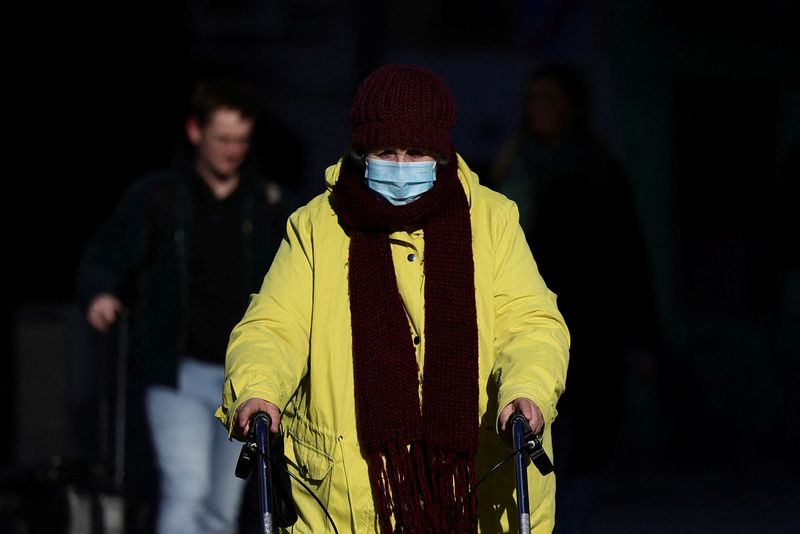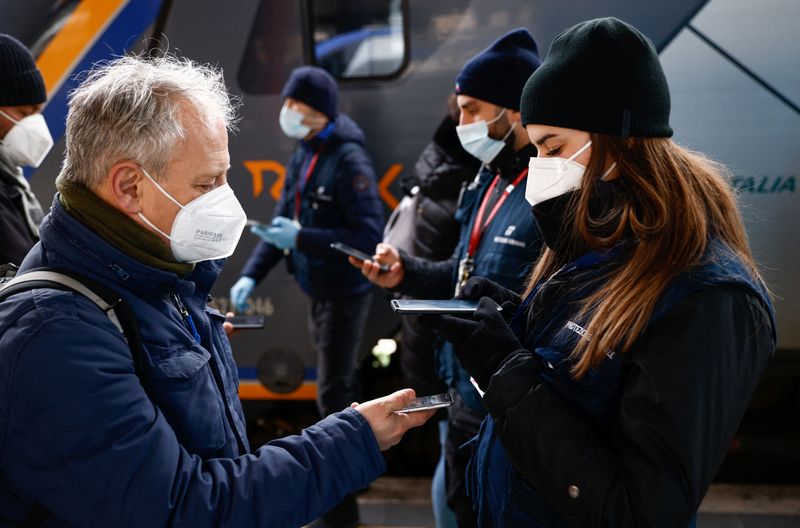(Reuters) – Here’s what you need to know about the coronavirus right now:
India’s cases multiply, vulnerable groups given boosters
India began administering booster doses of COVID-19 vaccine to frontline workers and vulnerable elderly people on Monday, with the fast-spreading Omicron variant fuelling an almost eight-fold rise in daily infections since the start of the year.
In recent days, hundreds of healthcare and frontline workers, including police, have contracted the virus, and there were media reports that hundreds of parliamentary staff have also tested positive ahead of a budget session on Feb. 1.
Australia vows to ‘push through’ Omicron wave as infections cross 1 mln
Australia must “push through” the fast-moving Omicron outbreak, Prime Minister Scott Morrison said, as infections surpassed 1 million, more than half in the past week alone, throwing a strain on hospitals and supply chains.
Growing hospital admissions have forced officials to restore curbs in some states, as businesses grapple with shortages of staff because of sickness or isolation requirements. Morrison, facing pressure at the start of an election year, plans changes to isolation rules to allow work in food production and distribution by those who have been in close contact with asymptomatic infections.
China’s Tianjin tightens control over travel as Omicron spreads
The Chinese city of Tianjin, with around 14 million people, has tightened exit controls and now requires residents to obtain approval from employers or community authorities before leaving town and a negative COVID-19 test within 48 hours of departure. The northern coastal city reported 21 domestically transmitted cases with confirmed symptoms on Sunday, the National Health Commission said, up from three a day earlier.
In the central Henan province, the city of Anyang detected two local Omicron infections, and the city’s outbreak could be traced back to a student arriving from Tianjin, a local paper backed by Communist party authority in Anyang said on Monday.
Long COVID could become Finland’s largest chronic disease, warns minister
“Long COVID”, where symptoms of COVID-19 persist for months after an initial infection, could be emerging as a chronic disease in Finland, Minister of Family Affairs and Social Services Krista Kiuru said.
Speaking at a news conference, she referred to a Finnish expert panel’s summary of more than 4,000 international studies, which showed one in two adults and around 2% of children may experience prolonged symptoms connected to COVID-19.
Unique strings of molecules may predict variants’ success
Researchers believe they have discovered an important way to identify SARS-CoV-2 variants that are likely to spread. Looking at 9-unit strings of molecules called nucleotides – the building blocks of genes – they found that except for Beta, which did not circulate widely outside of South Africa, each new variant has had more unique strings than the variant that immediately preceded it.
Vaccine manufacturers should pay attention to the unique nucleotide signatures on a variant circulating in France called IHU, because there is a good chance they will show up again in future variants, said Venky Soundararajan of Massachusetts-based data analytics company nference.
(Compiled by Karishma Singh; Editing by Sherry Jacob-Phillips)





















